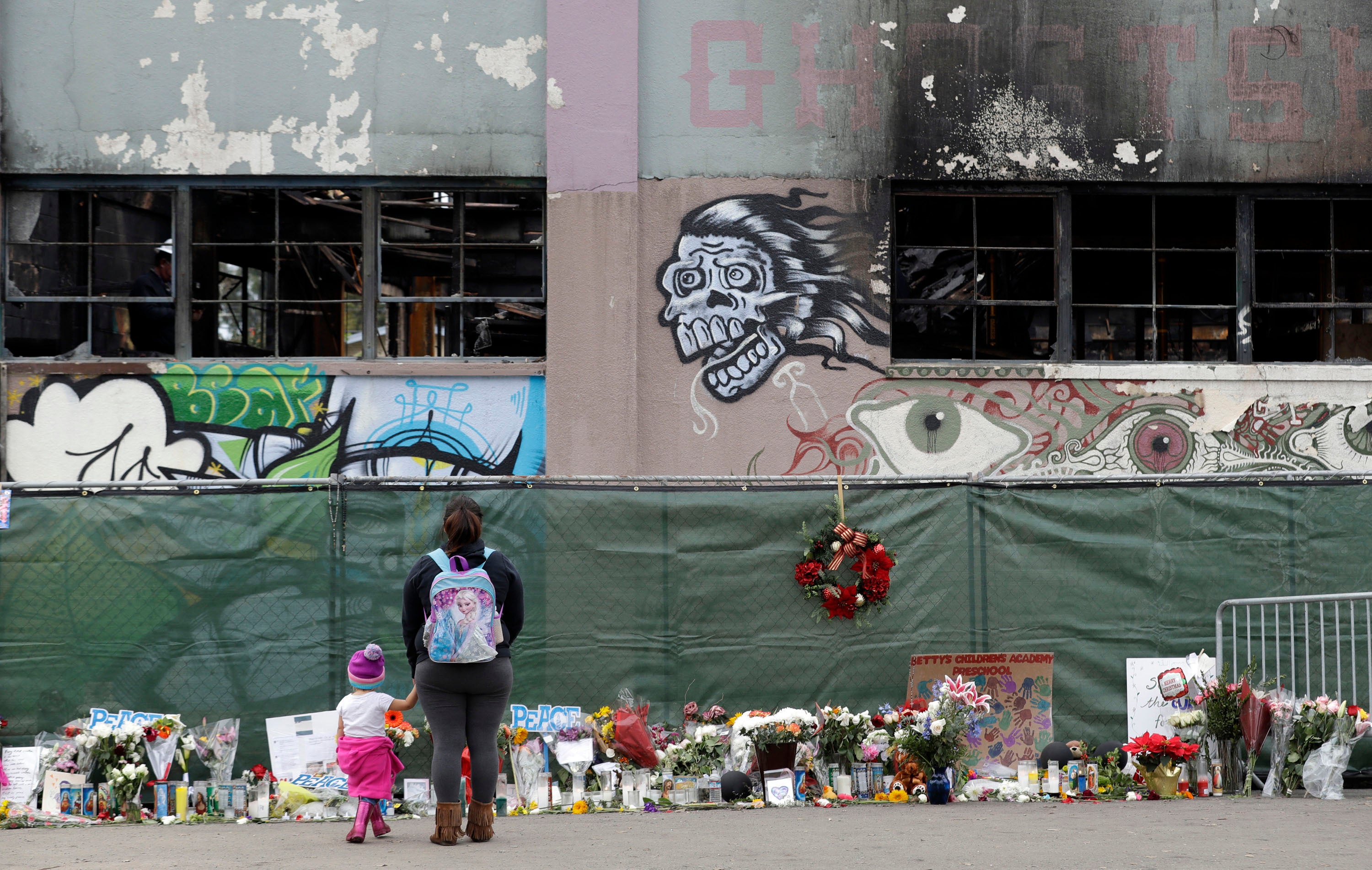Site of Oakland warehouse fire that killed 36 sold to community group
A converted artists’ warehouse in Oakland that burned in 2016 and killed 36 people has been acquired by a nonprofit community development organization

Your support helps us to tell the story
From reproductive rights to climate change to Big Tech, The Independent is on the ground when the story is developing. Whether it's investigating the financials of Elon Musk's pro-Trump PAC or producing our latest documentary, 'The A Word', which shines a light on the American women fighting for reproductive rights, we know how important it is to parse out the facts from the messaging.
At such a critical moment in US history, we need reporters on the ground. Your donation allows us to keep sending journalists to speak to both sides of the story.
The Independent is trusted by Americans across the entire political spectrum. And unlike many other quality news outlets, we choose not to lock Americans out of our reporting and analysis with paywalls. We believe quality journalism should be available to everyone, paid for by those who can afford it.
Your support makes all the difference.A converted artists' warehouse in Oakland that burned down in 2016, killing 36 people, was quietly razed this month in preparation for possible development into badly needed low-income housing.
The property that housed the Ghost Ship warehouse was acquired by The Unity Council, a nonprofit community development organization based in Oakland.
The council's CEO Chris Iglesias told the Bay Area News Group last week that they plan to move forward with care, knowing how sensitive the issue is for the families of those who died when a fire broke out in the warehouse during a Dec. 2, 2016, electronic music party.
“We just want to be really, really thoughtful in this process and just understand what a tragic event this was to them,” he said.
No cause was determined in the fire, but a likely electrical overload filled the warehouse with smoke and flames that quickly trapped partygoers inside. The building had been illegally converted into a live-work space and lacked working exits and fire extinguishers. A jumble of extension cords, rugs, old sofas and other flammable items crammed the structure.
Prosecutors charged Derick Almena, the master tenant on the lease who also lived in the building with his wife and children, and resident Max Harris with the deaths. A jury acquitted Harris in 2019, but Almena's trial ended in a hung jury.
In 2021, he pleaded guilty to 36 counts of involuntary manslaughter and served the rest of his sentence on home arrest.
Mournful family and friends packed the courtroom for the trial.
The fire exposed flaws in the city's fire inspections, and Oakland settled lawsuits from victims and their families for $33 million.